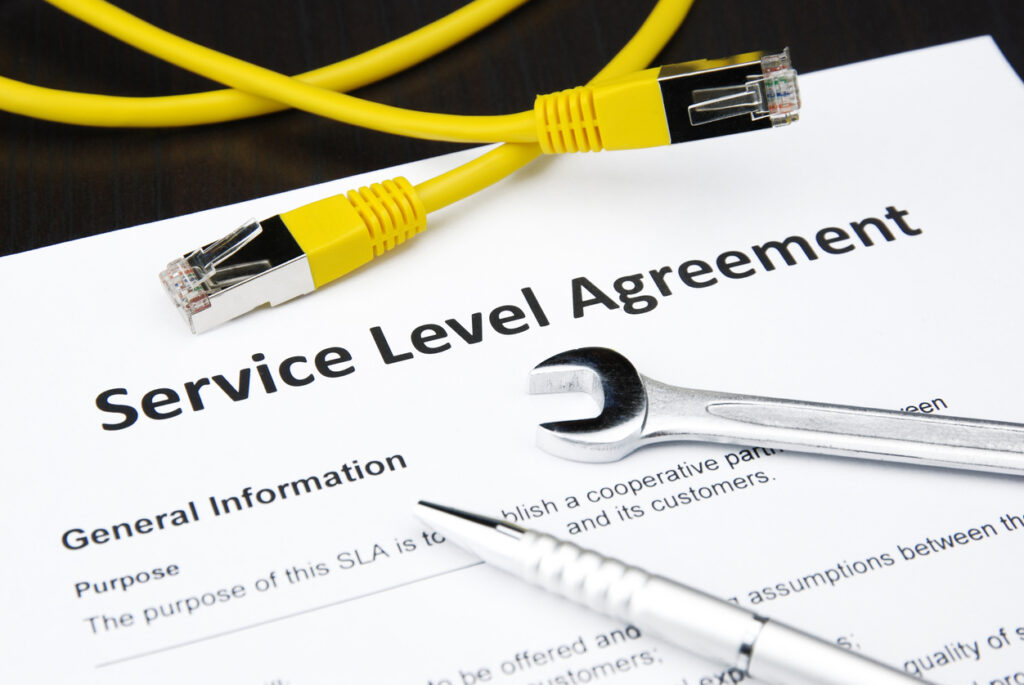Karl Robinson
June 23, 2022
Karl is CEO and Co-Founder of Logicata – he’s an AWS Community Builder in the Cloud Operations category, and AWS Certified to Solutions Architect Professional level. Knowledgeable, informal, and approachable, Karl has founded, grown, and sold internet and cloud-hosting companies.
During recent user research sessions, we heard multiple business owners and IT managers express dissatisfaction with their current AWS Managed Services Providers (MSPs). Yet, our interviewees weren’t actively looking for alternatives.
This was mainly because they were either not sure that a better alternative existed or because they were wary of the amount of time and effort needed to change to a different provider relative to the benefits they would gain.

This article isn’t arguing that Logicata’s service is always better, as that would be unfair to other good companies in the space. Instead, we offer a list of criteria that you can use to tell whether your AWS MSP partner is good at (and actually doing) its job.
We will explain what makes a good Managed Services Provider so that you can evaluate your existing AWS partner if you have one, or prepare for conversations with potential partners. Let’s dive in!
What is an AWS Managed Service Provider?
An AWS Managed Service Provider manages all your AWS infrastructure for you, relieving you of the headache of personally managing AWS infrastructure, including but not limited to EC2 instances, RDS databases, VPCs, and Route53 DNS zones.
AWS-managed services are offered by specialized providers like Logicata and are also among the many services provided by large multinational consulting corporations like Deloitte.
What constitutes a competent MSP?
While Amazon maintains a list of AWS Managed Service Provider Partners, being on that list doesn’t mean a provider is necessarily “good” or “bad”. For example, only partners that have reached an advanced partner level will be listed on the page.
This automatically excludes smaller companies that might still be excellent at what they do—and offer more affordable service than multinational consulting corporations.
So, as a SaaS business owner, how can you find a competent managed service provider that meets your needs if you can’t pick one off the list? The role of the MSP is to provide qualified AWS advice and handle its implementation.
Therefore, we believe that an MSP needs to be competent in both the technical aspects of AWS and the non-technical, organizational aspects needed to coordinate with the client—including effective communication and consistency of service.
Below, we list some areas that a qualified MSP should be proficient in. When you talk to your MSP or a potential provider, consider asking about these points, and make sure that the company has good practices or solutions for most (if not all) of them.
Technical competencies:
- Avoiding major site outages
- Keeping costs down
- Site availability
- Performance enhancements and monitoring
- Best-practice configuration
- Securing AWS environments
- Automation
Non-technical competencies:
- Communication and documentation
- Consistent process
- Trustworthy reputation

Let’s cover these competencies in more detail.
Technical competencies
Avoiding major site outages
A key part of dealing with potential site outages is prevention. This doesn’t just mean avoiding site downtime altogether. It’s also having the ability to quickly recover from a site outage, including having clear runbooks—lists of steps to follow to recover from particular kinds of outages.
A competent MSP should be aware of the possible causes of outages for your required infrastructure and will be able to show you that it can implement appropriate mitigation measures, such as backups of EC2 instances and databases, load balancing, emergency alerts, and the ability to scale the infrastructure, both horizontally and vertically.
If your MSP has not raised these issues with you, this could be a sign that it has not done its due diligence to maximize your site’s availability.
Keeping costs down
Unlike a DevOps engineer, who gets compensated through a salary and benefits, an MSP typically charges a percentage of your AWS bill as its fee. This percentage can vary massively (from around 15% to 80% of your total bill) depending on the level of service that you require and your current AWS spend.
This percentage-based model can act as a disincentive for an MSP to keep costs low, which would reduce the overall size of the pie they get a slice from. So it’s important to find an MSP that will prioritize saving you money and be transparent about how it will do this.
Investing in an MSP that pays careful attention to your business requirements and adapts its solution to your needs can save you money in the long run on unnecessary or unoptimized infrastructure.
Ensure that you understand the provider’s cost structure, and confirm that it has implemented cost controls so that you can be sure that it cannot overspend without you noticing.
Site availability
It may be unrealistic for a SaaS application or an e-commerce website to have 100% uptime, especially when cost is a factor, but your MSP should be striving to maximize your site’s availability while keeping costs in mind.
A competent MSP should discuss the tradeoffs between cost and availability during key architecture decisions and offer you both a choice and a recommendation on how to proceed. If the MSP can’t clearly explain its choices to you, it might be masking its lack of competence in this area.
Performance enhancements and monitoring
Application responsiveness can significantly impact customer happiness. Therefore, keeping the performance of your services steady should be one of the priorities of the MSP you work with.
A competent MSP should not only offer ways to monitor the performance of your public web pages by using tools like Pingdom and Google Lighthouse but also build out more detailed monitors for the underlying application components that contribute to this performance.
Databases, web servers and network connections should all have monitors and associated alerts. Logicata, for example, uses Datadog for metrics dashboards and alerts.
Best-practice configuration
For an AWS environment to be sustainable in the long term, it must be configured in ways that are consistent with the best practices. “Reinventing the wheel” in AWS and coming up with your own ways to do everything might not only be a waste of time and resources but also create security risks and complicate employee onboarding in the future.
Note that best practices vary depending on your organization’s size and business area. For example, a fintech firm that has heavy regulation requirements needs to follow a stricter set of practices for compliance purposes—and must pay a higher cost as a result.
Meanwhile, an e-commerce company might instead need to optimize to make maintenance easier and keep the cost lower. A competent MSP will know what the best practices are for your business and will be able to explain the reasoning behind its recommended configuration options.
Securing AWS environments
In addition to following best practices for systems architecture, a competent MSP should be able to advise you on how to achieve a suitable level of security for your AWS infrastructure.
Your MSP should be able to explain exactly how it is working to secure your infrastructure and what checks and reviews are in place to maintain this security posture.
Let Logicata optimize your AWS cloud environment.
Non-technical competencies
Technical competence is definitely important when choosing an MSP, but unfortunately, too many companies choose an MSP that’s technically savvy but can’t communicate well enough with them.
These communication issues only come up at a later time after the companies have already decided to hire an MSP based on their technical knowledge.
If you receive poor communication from your MSP, you may not fully understand how your infrastructure has been set up, leading to problems when you deploy your product. You could also fail to see the cost implications of certain decisions.
That’s why we recommend ensuring that your MSP meets the following non-technical criteria.
Communication skills
When everything is deployed and running smoothly, most business owners find communicating with their MSPs during planning discussions to be a smooth process.
For example, strategic discussions on Zoom on how the AWS environment will change in the coming months and conversations regarding the current performance of functioning deployments are rarely painful.
However, most providers have a gap when it comes to communicating in urgent cases. It’s essential for an MSP to be available to promptly respond to a critical event, for example, an e-commerce site being completely offline.
A competent MSP should have clearly specified timelines for first response and resolution times for various issue levels, from informational to critical. It should also have clearly outlined business hours that overlap with your time zone.
Logicata offers 24/7 AWS support for this reason—and it provides monitoring and alerts to keep you informed of any incidents or outages that may occur.
You can’t be watching your application dashboards every minute (everybody needs to sleep at some point), so it’s crucial to have an MSP with detailed monitoring and a robust incident response plan.
Consistent process
How can you tell whether the MSP will do high-quality work for you in the future? One revealing sign is whether it follows consistent processes when managing your AWS account and running its business overall.
A competent MSP should be able to demonstrate evidence that it follows consistent processes with all clients and their data. Logicata, for example, has achieved the ISO 27001 certification to show that its information security processes meet international standards.
Trustworthy reputation
A good MSP will have already proven itself to be reliable. Look for a service provider with a proven track record and a focused set of clients so that you know that its approach is a good fit for your business needs.
It’s also a positive sign when an MSP contributes knowledge to other service providers—look for MSPs that demonstrate their knowledge leadership and assist the community by providing informative blog posts or giving regular talks on new or useful AWS topics.
Bonus: how to avoid vendor lock-in
Say you’ve found a provider that ticks all the boxes. It might meet your needs right now, but how do you make sure you don’t get stuck with that vendor if its service gets worse in the future?
A competent MSP should allow you to retain ownership of all your AWS infrastructure’s components, including access to all accounts. At Logicata, we believe that you, as the client, should be the one to hold the keys to your own AWS environment.
The provider should also be investing a significant part of its time into creating documentation that’s aimed at your internal team. Making your team aware of how your AWS infrastructure is built will enable them to complete their day-to-day tasks more quickly and continue to operate your application even without the MSP if needed.
Need a second opinion on your AWS MSP’s work?
To summarize, a good MSP should prove to you that it has a solid plan in place for avoiding major site outages, keeping your site constantly available, reducing costs, and improving site performance.
It must also be an effective communicator, keep up to date with documentation, and clearly communicate to you how the exit process would work if you wanted to switch providers in the future.
A good MSP isn’t reluctant to provide full documentation of the solutions it has implemented for you because it does not fear you leaving for greener pastures.
Are you unsure as to whether your MSP ticks all these boxes?
At Logicata, we provide managed AWS services backed by extensive expertise in working with small- and medium-sized technology businesses.
We are happy to have a look at what your current provider is doing for you and share our opinion on whether its work matches the best practices in the industry and is a fit for your line of business.
If you would like help to decide whether your current provider is right for your company, contact Logicata today.





